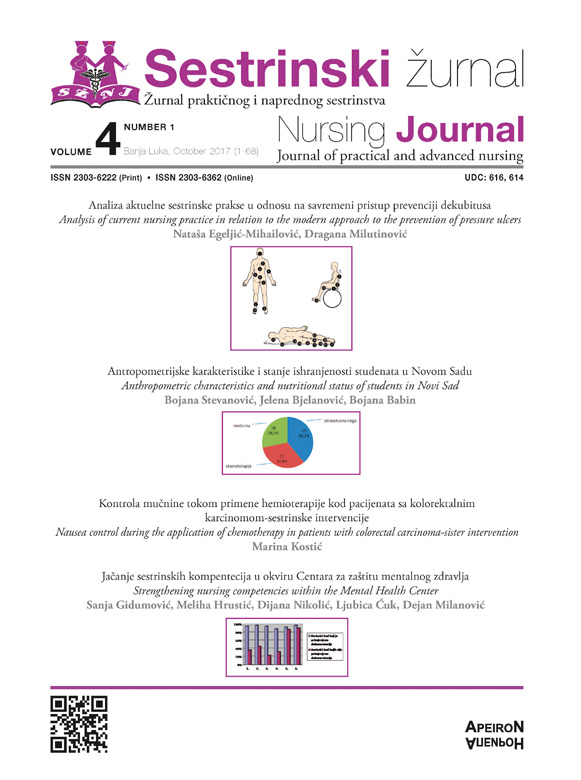The quality of life of opiate addicts in Novi Sad // Kvalitet života zavisnika od opijata u Novom Sadu
DOI:
https://doi.org/10.7251/SEZ0117019BAbstract
Dependence on psychoactive substances is periodic or chronic intoxication with natural and synthetic psychoactive substances. The aim of the research is to assess the overall quality of life, health and living areas (physical, psychological, social functioning and environment).
The research instrument is a standardized questionnaire of the World Health Organization for the measurement of the general quality of life, expressed in the WHOQOL-BREF index that reflects the quality of life assessment based on the assessment of respondents who bring their own standards. Results - The survey covered 200 respondents who were stratified by gender, work status and place of residence. There are no significant differences in the quality of life between the sexes. There is no difference between the group of respondents living in the village and the group living in the city on the physical, mental, social and quality of life. A significant difference between these two groups occurs in general health, where respondents living in the village achieve an average of higher values than those living in the city. There is a difference in the extent of physical and mental health, social relations and the environment between employees and unemployed respondents, where employees achieve higher values.
In our research, 75.5% of respondents have below-average values of quality of life, 63.5% of respondents have under-average general health, 51.0% of subjects have below average quality in the field of physical health and 60.5% of subjects have below average quality in the domain environment.

